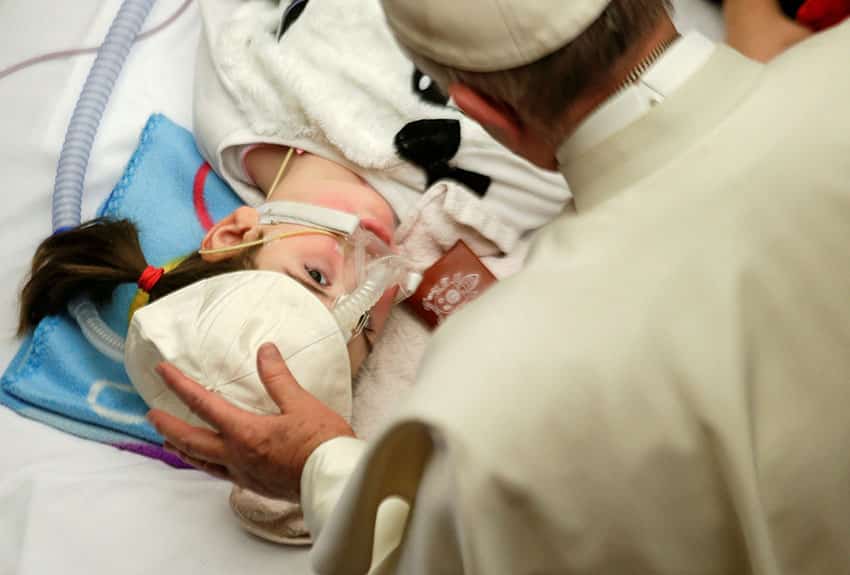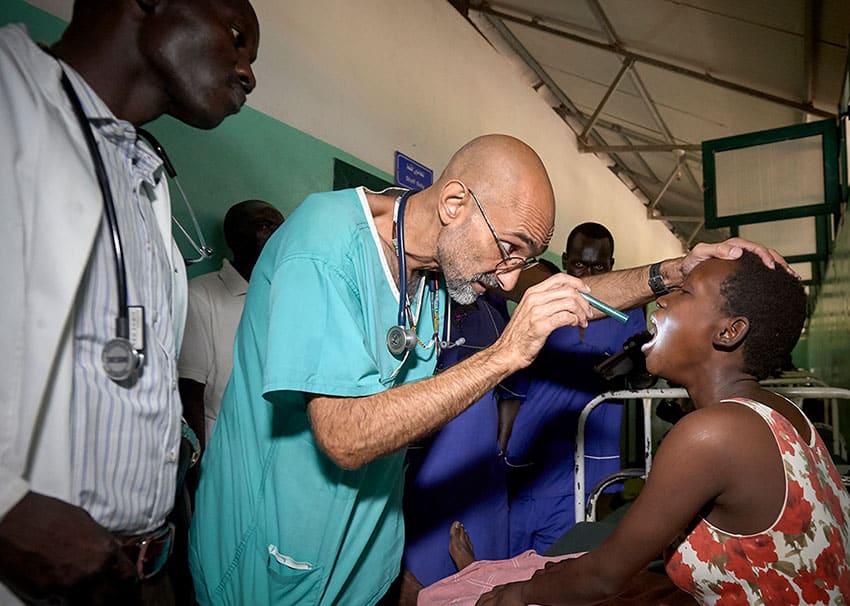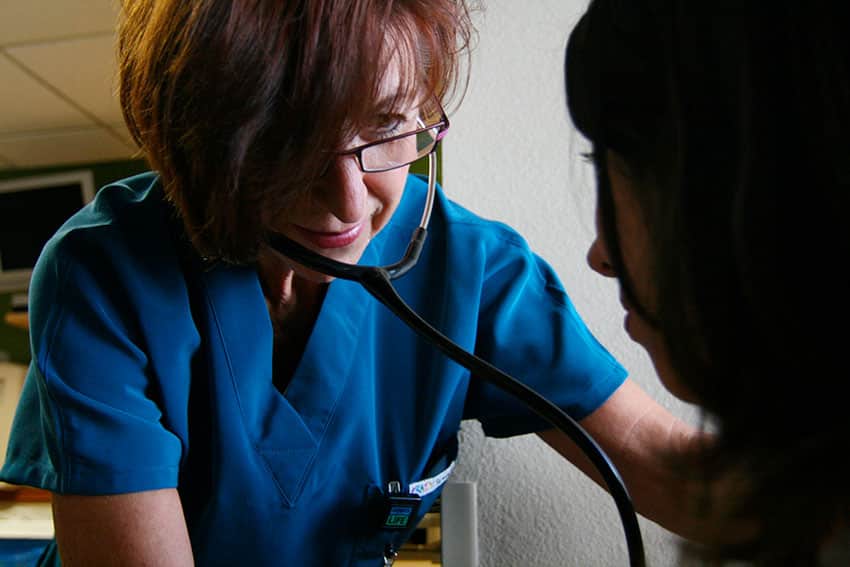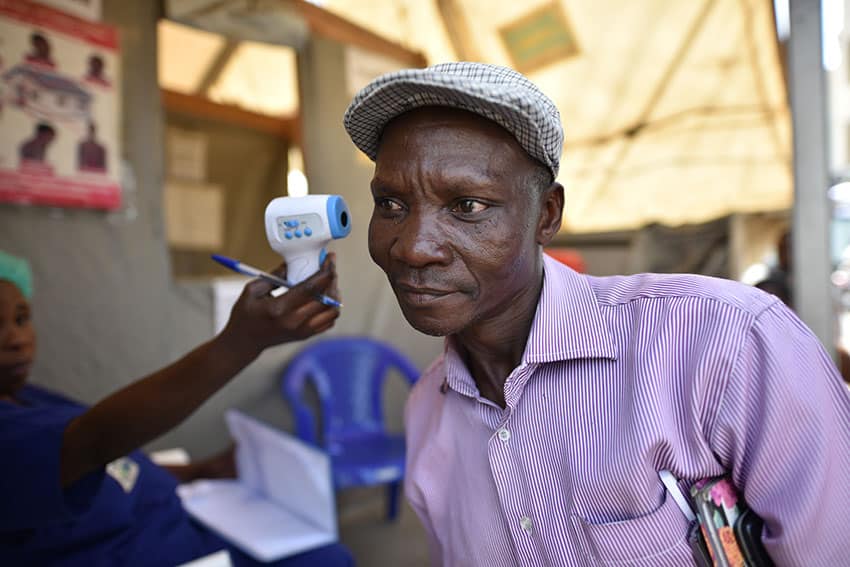
On 11 February the Church observed the 28th World Day of the Sick, an occasion to be in prayerful solidarity with those suffering ill health and those who care for them. It was also an occasion to reflect on the witness and meaning of Jesus’ ministry of healing – a ministry which continues to inspire today the Catholic organisations responsible for some 80 public and private Catholic hospitals around Australia.
In the Gospel we learn that healing is not simply about curing the sick. Rather as Australia’s largest non-government grouping of health, aged care and community services, Catholic Health Australia, strives to communicate, the Catholic ministry of healing has three core dimensions. It seeks to offer to those who suffer: radical inclusion, accompaniment and restoration to community and service.
Inclusion that’s radical
For the Catholic health and aged care sector, radical inclusion means bringing the most socially excluded among us to the centre of our work and our care. Think of the leper that Jesus healed – the person who was bound by law to avoid contact with others and whom society considered ritually unclean. This is the person Jesus drew into the centre of his care.

Think also of the victim of thieves in the parable of the Good Samaritan. Fr Gerry Arbuckle SM, a prolific writer on the mission of the Catholic health and aged care sector, describes the parable of the Good Samaritan as its founding story, as it highlights the key elements which guide our approach.
The Catholic health sector has always focused on the socially outcast and the marginalised – whether it was the poor living in Darlinghurst in the 1850s, or those enduring the stigma of AIDS in the 80s, or the long ignored indigenous communities today.
Second, the ministry of healing involves accompaniment. We seek to journey with those we care for, entering into the experience of the person in need. Ours is not one of episodic treatment or a focus on simply physical care of the body. Rather care encompasses the whole person: body as well as mind, spirit as well as family and connection to the community to which a person belongs.
“the Catholic health sector has always focused on the socially outcast and the marginalised – whether it was the poor living in Darlinghurst in the 1850s, or those enduring the stigma of AIDS in the 80s”
The Good Samaritan also ensured the victim continued to be cared for.
He went up to him and bandaged his wounds, pouring oil and wine on them. He then lifted him onto his own mount and took him to an inn and looked after him.
Finally, for those in our care we seek restoration to community and service – a restoration which encompasses those cared for as well as our care professionals and the wider community. Our Catholic vision emphasises relationship with others, and the use of our gifts for the benefit of the community and all creation. Holistic healing facilitates where possible, a person’s capacity to continue those essential relationships as well as a capacity to contribute meaningfully to our world.

The World Day of the Sick allows us to reflect on what the ministry of healing means for clinicians and health professionals, as well as for the sick, and for our community.
The history of the day gives some context to this. The World Day of the Sick was inaugurated by Pope Saint John Paul II in 1992, a year after he had been diagnosed with Parkinson’s disease.
Pope Francis, in his message for this year’s World Day of the Sick has chosen as his theme the words of Jesus “Come to me, all you who labour and are burdened, and I will give you rest” (Mt 11:28).
Not meaninglessness, but a proposal of hope
Pope Francis addresses the sick: “Dear brothers and sisters who are ill, your sickness makes you in a particular way one of those “who labour and are burdened”, and thus attract the eyes and heart of Jesus. In him, you will find light to brighten your darkest moments and hope to soothe your distress. He urges you: “Come to me”.
And he speaks to all of us, urging us to care for the poor and under-served:
“I urge healthcare institutions and government leaders throughout the world not to neglect social justice out of a preoccupation for financial concerns. It is my hope that, by joining the principles of solidarity and subsidiarity, efforts will be made to cooperate in ensuring that everyone has access to suitable treatments for preserving and restoring their health”

In Australia we have a tradition of healing of which we can be very proud. We have amazing Catholic hospitals in our major cities such as Calvary, St John of God, St Vincent’s, Mercy, Mater and Cabrini. We have aged care facilities run by a wide range of Catholic providers. All our Catholic ministries seek both to provide direct care to those in need, as well as be agents for a more just and accessible system of care.
Present from cradle to grave
The Catholic healing ministry is there for the community at the beginning, in our maternity wards and at life’s end, in our aged care facilities and palliative wards. We seek to care for everyone not only in our hospitals, but in your homes and in your communities. We strive to honour the long tradition in which we stand of service to the sick and under-served and, inspired by the creativity and generosity of our founders, we commit to innovative new horizons of care wherever the demands of the Gospel might lead.
As a community of faith let us commit to prayerful solidarity with those struggling with sickness, and with clinicians and caregivers who nurture their healing and accompany their suffering.
God of consolation, bless them and give them courage, hope and peace.
Related
